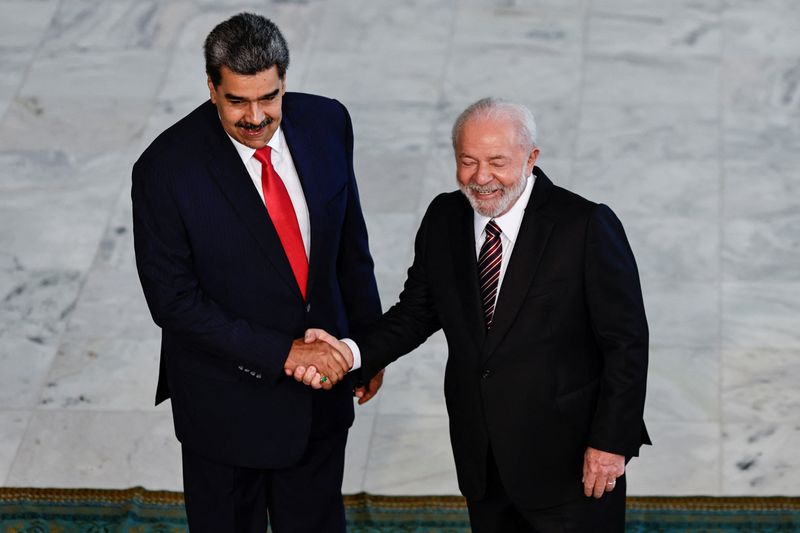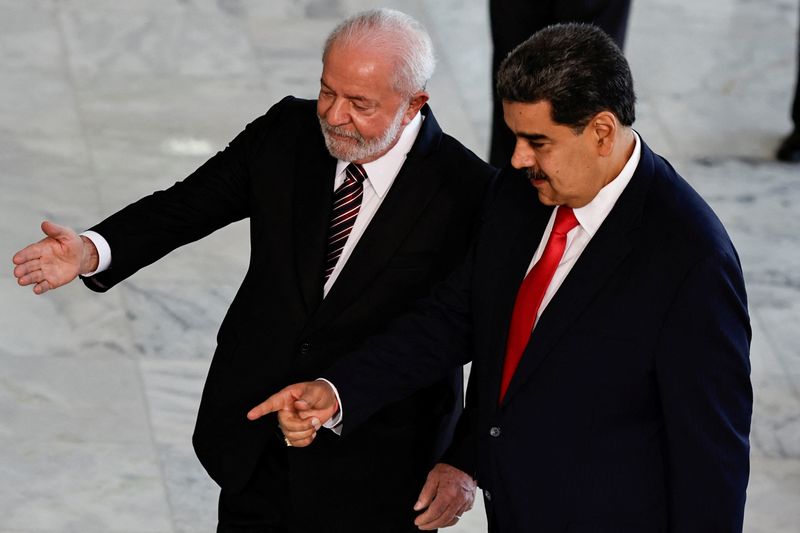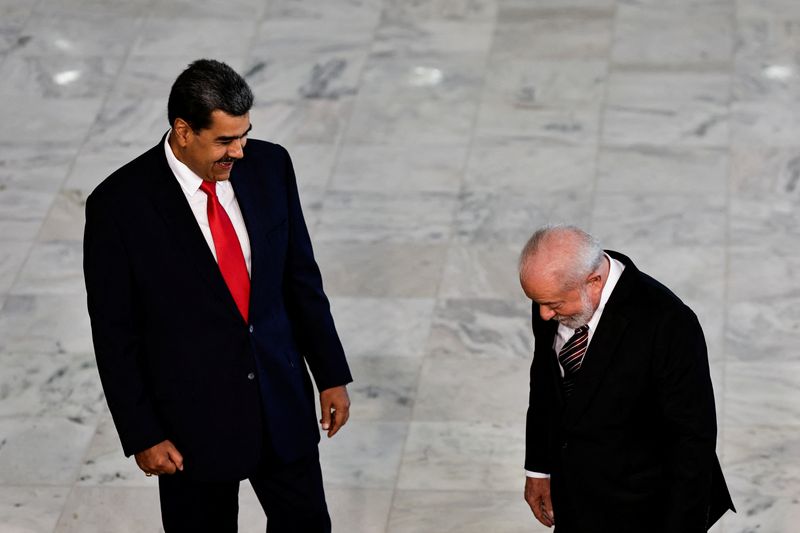BRASILIA (Reuters) – Venezuelan President Nicolas Maduro and Brazilian leader Luis Inacio Lula de Silva on Monday assailed U.S. sanctions against Venezuela and Maduro said he hopes a regional South American summit in Brasilia will call for their removal.
Lula called the U.S. sanctions “extremely exaggerated” and criticized the United States for denying the legitimacy of fellow leftist Maduro, who is considered by Washington an authoritarian leader who has not allowed free elections.
Maduro was on his first visit to Brazil since 2015 taking advantage of warmer relations before 11 South American presidents meet in Brasilia on Tuesday.
The Venezuelan president also said his country wants to be part of the BRICS group of leading emerging nations, which Lula said he would personally favor.
Brazil’s former hard-right President Jair Bolsonaro had banned Maduro from entering Brazil when he took office in 2019, a measure that Lula lifted when he returned to power this year.
“We are living a historic moment … it’s hard to believe so many years went by with no dialogue with a neighbor with whom we share the Amazon region,” Lula said at a joint press conference.
Among the issues on their agenda was a large debt Venezuela has run up with Brazil’s National Development Bank, Brazilian officials said. Brazilian Finance Minister Fernando Haddad was due to meet with Maduro and Lula, they added, and the president of state-run oil company Petrobras, Jean Paul Prates.
Lula said he argued with the United States and fellow Social Democrats over Maduro’s legitimacy and the “900 sanctions” Venezuela faces. “I think it is really absurd that they deny that Maduro is president of Venezuela,” he said.
The South American presidents, all except Peru, will discuss the launch of a cooperation bloc in place of the defunct UNASUR, which was created in 2008 during the previous presidency of Lula with the leftist leaders at the time of Venezuela and Argentina, Hugo Chavez and Cristina Kirchner, respectively.
The organization floundered when several South American countries elected right-wing governments, creating diplomatic fissures on the continent.
(Reporting by Anthony Boadle, Lisandra Paraguassu and Gabriel Araujo; Editing by Nick Zieminski and Grant McCool)




